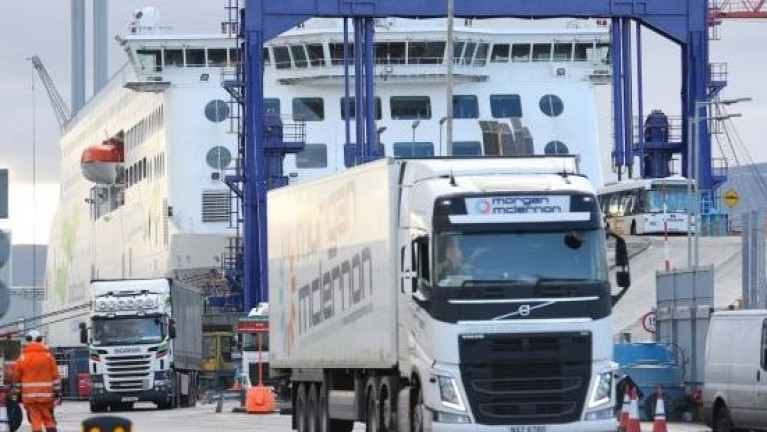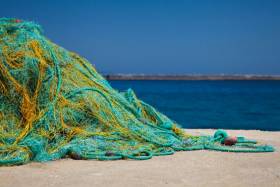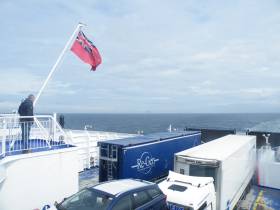Displaying items by tag: Brexit Impact
Trade Traffic - Brexit Causes Sharp Fall in Irish Lorry Freight on Irish Sea Ferries
As the impact of Brexit continues affecting trade, lorry freight volumes on ferries between Dublin and Holyhead – the busiest Irish Sea route – fell by a third in the first nine months of the year.
New industry figures to be published shortly will show a sharp reduction in the number of lorries moving between Ireland and Britain and across the “landbridge” to mainland Europe as companies prefer the certainty of direct routes without border checks and controls.
The Irish Maritime Development Office is finalising figures on port traffic for the third quarter.
Dublin Port and Rosslare Europort have recorded sharp declines in lorry freight traffic between Ireland and Britain but a surge in freight volumes on direct routes as traders avoid post-Brexit Britain.
There has been an increase in lorry freight moving on ferries between Northern Ireland and Britain as hauliers move away from ports in the Republic to avoid checks on goods.
Neither Dublin or Rosslare have experienced the disruption to shipping witnessed in the UK where shipping companies have had to divert supersized cargo vessels away from Britain because of bottlenecks in the global supply chain and a shortage of lorry drivers.
Click the The Irish Times for more about Irish Shipping traffic.
#BrexitImpact - Ireland's fishing industry will not lose out to agriculture in the wake of Brexit, the new Marine Minister assured stakeholders at this year's SeaFest in Galway.
Speaking to The Irish Times, Minister Michael Creed said "I am not going to shop one in favour of the other" amid concerns in the marine sector of a repeat of Ireland's concessions in favour of farming in negotiations to join the then EEC in the early 1970s.
As for what measures the Government will take to address the impact of Brexit, the minister said that "until Britain triggers the exit mechanism and lays its cards on the table, we can’t react".
Recently it was suggested that Britain's exit from the EU could create an opportunity for north Atlantic coastal countries – including Ireland and non-EU member Norway – to form their own economic group and take greater control of the region's fisheries.
The impact of Brexit is already resonating in the marine sector, as major Irish Sea ferry operator Stena Line, based in Sweden, confirmed it is "considering the implications for all of [its] UK interests".
#BrexitImpact - Ferry operator, Stena Line has said it will have to assess how Brexit could impact the UK. The Swedish company, which sails between Holyhead and Dublin, employs hundreds of workers in North Wales.
A Stena Line spokesman said: "As Brexit is a completely new situation Stena Line will have to evaluate its potential impacts from a number of different perspectives.
"Stena Line is currently working with the UK Chamber of Shipping to consider the implications for all of Stena’s UK interests.
"The UK Chamber of Shipping is an important neutral platform for us to work with the wider shipping community, including its social partners and stakeholders, to better understand the practical implications of a UK exit from the EU.
To read more click WalesOnline here.


























































